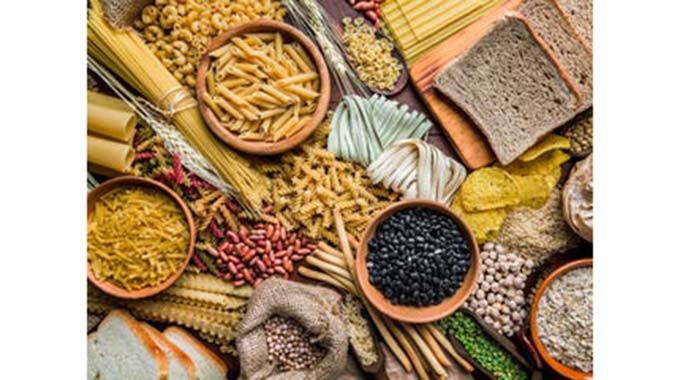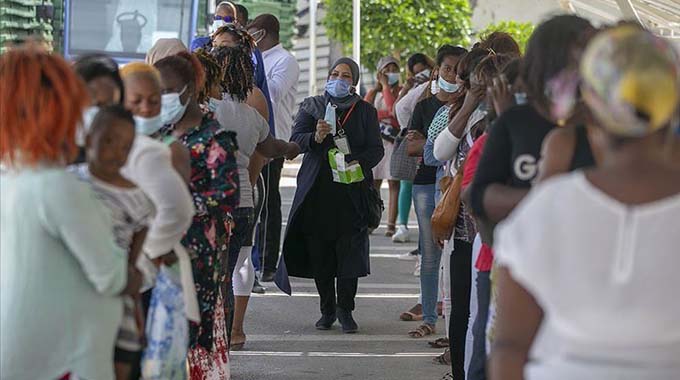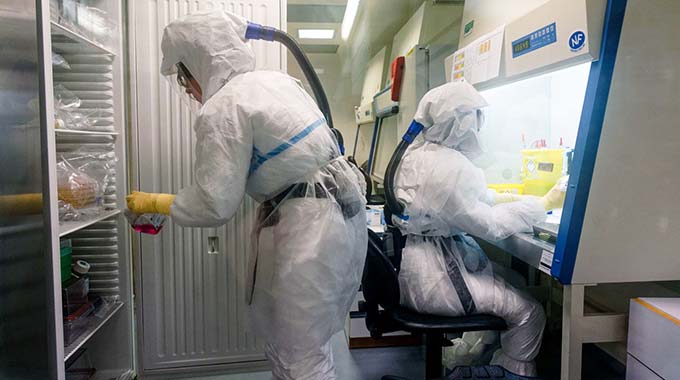An editorial in a top medical journal says low-carb diets could help prevent coronavirus complications. Experts say it’s not that simple.

Gabby Landsverk
As countries like the US and UK are facing a potential second wave of coronavirus, researchers are scrambling to find potential new long-term solutions to fight the disease.
One editorial suggests we perhaps needn’t look further than the pantry: Sticking to a low-carb diet could potentially improve metabolic health and reduce the risk of coronavirus complications, according to a new article published in the BMJ Evidence-Based Medicine.
Maryanne Demasi, a health science journalist with a PhD in rheumatology, argues in the medical journal that underlying conditions like diabetes, heart disease, and obesity have been shown to significantly increase the risk of more severe cases of COVID-19. She writes that low-carb diets can help control blood sugar and improve metabolic health, potentially protecting against dangerous complications from coronavirus.
It’s true that there’s evidence suggesting that underlying conditions like obesity and diabetes are linked to more severe coronavirus infection, and previous research has shown low-carb diets can help with both weight loss and blood sugar control.
However, whether low-carb diets in particular can protect against coronavirus is too big a stretch given the lack of evidence, according to Dr. Caroline Apovian, director of the Nutrition and Weight Management Center at Boston Medical Center.
“It’s a complicated topic but I have several issues because the author makes some big leaps,” Apovian told Insider, explaining that while the editorial makes a good case for the importance of nutrition, the conclusions extend beyond what we have data to prove.
According to Apovian, a healthy diet can support a healthy immune system, whether it’s low-carb or not, but no form of diet has been shown to be effective against the virus in the short term, so don’t worry about eating carbs in quarantine unless a doctor specifically advises against it.
It’s more important to cut processed foods and sugar
The World Health Organization has emphasized that diet and nutrition are crucial for overall health, especially long-term, and do play some role in preventing disease and complications.
“While it doesn’t specifically help for COVID-19 a healthy diet and being in generally healthy condition and protecting and promoting immune health is very positive for any number of infectious diseases so I think it is important; good nutrition leads to better immune systems,” Mike Ryan, executive director of WHO’s Health Emergencies, said in a recent press conference.
As Demasi correctly suggests, processed foods, highly refined grains, and added sugars have been linked to health issues such as hyperinsulinea, excessive weight gain, and metabolic syndrome.
But Apovian said low-carb is only one possible solution to that problem.
Cutting out processed foods is one of the most significant changes experts agree you can make for your health, since energy-dense, nutrient poor processed foods are hyper-palatable, encouraging overeating and pushing out whole-food sources of nutrients in your diet.
After that, whether you stick to a low-carb or a low-fat diet makes little difference, according to research, since both can be equally effective for maintaining a healthy weight and metabolism.
Nutrition isn’t a quick fix for the health problems linked to worse COVID-19
Apovian said it’s important to understand the nutrition is about lifestyle changes in the long-term.
Demasi writes with concern about people stockpiling refined carbs in quarantine, potentially ruining their health.
Apovian said gaining a pound or two isn’t the issue. Those most at-risk of coronavirus complications are those with long-term underlying conditions like obesity, diabetes, heart disease and metabolic syndrome. A few weeks of cutting carbs won’t fix them — it can take three months to a year to see significant diet-related changes to health.
Similarly, those health problems don’t appear from a month or two of stress-eating extra carbs.
“The bottom line, a healthy diet is the one you should be on, whether it’s low carb, Mediterranean, or DASH. And in the end, what kind of diet are you going to be on for the rest of your life?” Apovian said.
Above all: “Low carb will not treat or prevent COVID-19,” Apovian said. – Insider







Comments